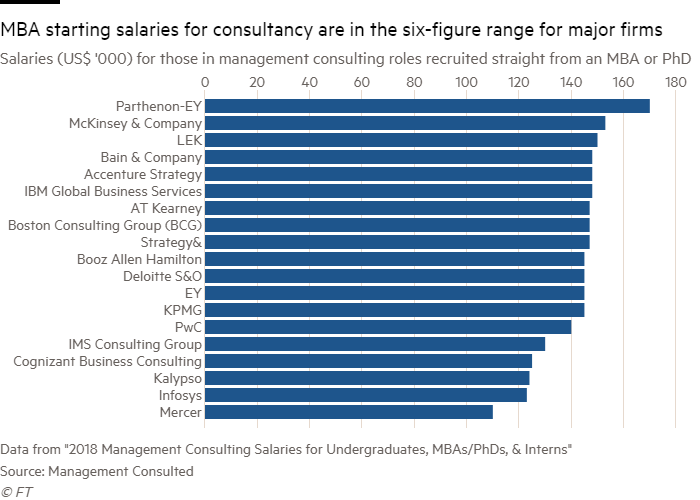
Ecologist is a scientist who studies and analyzes the environment. He or she looks at big systems and helps preserve them. Ecologists share a love for nature, and a desire save the planet. Ecologists share a strong sense community. They review the articles of other researchers before they submit them to publishers. These scientists are motivated and engaged by this community spirit. Ecologist work is not easy, and there are many institutional hurdles that prevent progress against environmental degradation.
Job description
An Ecologist manages the environment. An Ecologist's job involves a variety of tasks, including overseeing environmental surveys and reports and advising government officials. They may also need to educate the public about the importance protecting natural areas. Some ecologists are responsible for projects that directly affect biodiversity and climate, such managing wetlands. They can also be experts in environmental cases.

An Ecologist must have extensive knowledge of ecosystems. This includes the relationships between organisms within them and their surrounding environment. Ecologists often focus on terrestrial, freshwater, and marine ecosystems. They might also conduct surveys to find out how environmental issues impact certain species or habitats. You may also have to contribute to legislation and work with other researchers or agencies.
Education requirements
There are strict education requirements for becoming an ecologist. In addition to a graduate degree in ecology, candidates should also have excellent communication skills, a passion for animals, and strong presentation skills. Candidates must have attained at least 50% in their undergraduate degrees and have passed any required entrance exams.
There are many different career paths within the field of ecology. These include consulting to both external and internal clients. This position involves the coordination and development of technical comments, guidelines, policies, as well as tools to improve ecosystems and human healthcare. They may also conduct research in wildlife management. They are also able to help with monitoring endangered species and decision-making.

Although the educational requirements to become an ecologist are varied, they generally require a Bachelor's degree in Botany, Environmental Science or Ecology. Many bachelor's degrees include courses in statistics, mathematics, and computer science. Internships and pursuing an M.S. are two options for those already working in the field. A Ph.D., or internship program is available for those already in the field.
FAQ
Can I get a degree as a consultant?
You can become an expert in any subject by learning the subject thoroughly, then applying what you have learned.
Start studying today if you want the skills to be a great manager!
A degree without relevant experience may make it difficult for you to be hired. If you have demonstrated that you have studied the same subjects as those who received the jobs, then you may still be eligible to apply.
Employers will always be attracted to candidates who are able to apply their real-world skills.
Do I need to seek legal advice?
Yes! Yes! Many consultants create contracts without consulting clients. This can lead into problems down-the-road. For example, what happens if the client terminates the agreement before the consultant's completion date? What happens if your consultant doesn't follow the contract deadlines?
It's best to consult with a lawyer to avoid potential problems.
What kind of contracts can consultants sign?
When consultants are hired, they sign standard employment agreements. These agreements define the terms of the agreement, including how long the consultant is expected to work for the client as well as what he/she should be paid.
Contracts specify the area of expertise that the consultant will specialize in and the amount they will be paid. The agreement might state that the consultant will conduct training sessions, workshops or webinars.
Sometimes, the consultant agrees to do certain tasks within a given time frame.
Many consultants sign independent contractor agreements in addition to the standard employment agreements. These agreements allow consultants to work independently while still receiving payment.
Is it necessary to pay taxes on consulting income
Yes, you will need to pay tax on your consultancy profits. It depends on how much income you make per year.
If you are self-employed, expenses can be claimed on top of your salary. These expenses include rent, childcare and food.
But you won't be able to deduct interest payments on loans, vehicle depreciation, or the cost of equipment.
If your annual income is less than PS10,000, you can only claim 25% back.
However, you might still have to pay tax if your earnings are higher than the threshold. This depends on whether you are an employee or contractor.
Pay as you Earn (PAYE) is the most common method of taxing employees. Contractors pay VAT.
Why would a company hire consultants?
A consultant offers expert advice on improving your business performance. They don't sell products.
A consultant assists companies in making better decisions by offering sound analysis as well as suggestions for improvement.
Senior management teams often have consultants working closely with them to help them understand their needs.
They offer coaching and leadership training to help employees achieve their highest potential.
They could advise businesses about reducing costs, streamlining processes and increasing efficiency.
Statistics
- According to statistics from the ONS, the UK has around 300,000 consultants, of which around 63,000 professionals work as management consultants. (consultancy.uk)
- WHY choose me: Why your ideal client should choose you (ex: 10 years of experience and 6-week program has helped over 20 clients boost their sales by an average of 33% in 6 months). (consultingsuccess.com)
- Over 50% of consultants get their first consulting client through a referral from their network. (consultingsuccess.com)
- My 10 years of experience and 6-step program have helped over 20 clients boost their sales by an average of 33% in 6 months. (consultingsuccess.com)
- According to IBISWorld, revenues in the consulting industry will exceed $261 billion in 2020. (nerdwallet.com)
External Links
How To
How do you find a good advisor?
The first step in finding a good consultant is understanding what you want from your consultant. Do you want them helping you improve your website's performance or not? You may want them optimizing your site to rank higher for search engines. Or perhaps you just want someone who can tell if there are any issues with your current hosting provider. You should know the type of services that you require before you start looking at other companies. There are many consultants out there who claim they can provide these services, but only a few actually live up to their claims. How do I choose one? Here are some considerations when choosing a consultant.
-
Get recommendations. This is probably one of the best ways to find a consultant. You don't want to hire someone you've never heard of before because you'll likely pay too much. You also don't want someone with a poor reputation to work for you. If you're lucky enough to get referrals from people you trust, then great! However, even if this is not possible, you might still be able check reviews online. You can find testimonials and case studies from clients who have used your service.
-
Ask around. Many people are not aware of the benefits of hiring a consultant. Many people believe that they are doing well and don't need any changes. This is often incorrect. Even if you're getting great results right now, chances are that you haven't been keeping up with new trends or technologies. Your business could be missing out if it relies on outdated methods. Ask around to find a qualified consultant.
-
Make sure to verify their qualifications. It doesn't matter if you are looking for a consultant to help you build a blog or launch a multimillion-dollar eCommerce site, you need to make sure they have the right skills to manage your project. Check that they are qualified to complete the tasks and have enough expertise in the chosen area.
-
Find out about the types of projects they specialize. This is false. Some areas require specific types of training or education. If you are looking for someone to create a WordPress theme, then you will not want to hire someone who isn't a specialist in Drupal. It is the same for programming languages, graphic design, and so on. Ask what projects they usually work on.
-
You should know their prices. We said that you don't need to pay too much for consulting services. You also don’t want to spend too little. Consultants come in all shapes and sizes. There are some that charge an hourly fee, while others may bill per job. You will save money if you know exactly what you're going to pay upfront.
-
Understand what they offer. Do they offer free consultations? They will be able to offer you guidance on setting up your own system. Do they promise that your site will rank higher once you have worked with them? If you don’t like the information you receive during your consultation, you can cancel it without penalty.
-
You can also find out if they offer discounts on multiple months or over years. Many consultants offer extended discounts for long periods. Even though you do not necessarily have to commit to a whole year of service, you might still be able to benefit from any specials they offer.